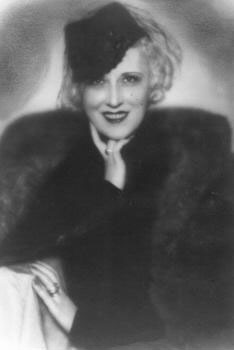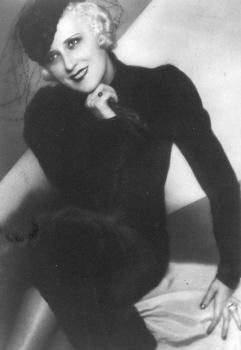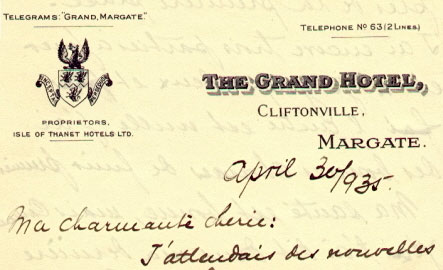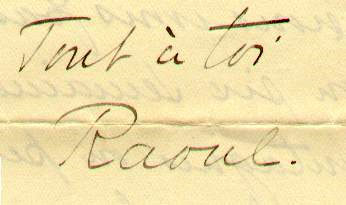Olga Capablanca Clark
By Edward Winter
Thanks to Capablanca’s second wife, Olga, much is known about Capablanca the man, such as his character, tastes and pastimes. Towards the end of her life (she died in 1994) we had considerable contact with her, and a compendium of most of the reminiscences which she sent us is to be found in The Genius and the Princess. Among the prominent figures mentioned are the Duke and Duchess of Windsor, King Leopold III of Belgium, Prokofiev, Stalin and von Ribbentrop, but she also provided many details of everyday life, including Capablanca’s love of animals, children, cooking, music and reading.
We have many reasons to recall Olga Capablanca with gratitude. She contributed four articles to Chess Notes and generously provided assistance with our book on Capablanca. In the 1980s and early 1990s many dozens of letters and telephone calls were exchanged and, despite anno Domini, she was exceptionally shrewd in her judgements.
The three illustrations above are from a love letter which Olga Capablanca gave us.

For a larger version, click here.

The two photographs below are the best-known shots of Capablanca with his second wife:


Below is a further selection of photographs of the couple:






The photograph above, which includes the Cuban writer Alfonso Hernández-Catá, appeared in Diario de la Marina, 10 March 1942.
This montage is one of a number of souvenirs that Olga Capablanca sent us:

Below is the front cover of our inscribed copy of José Raoul Capablanca Ein Schachmythos (Düsseldorf, 1989):

Finally, two photographs, featuring Botvinnik and Kasparov, which Olga Capablanca sent us in the late 1980s:


Other Capablanca articles by Edward Winter:
Submit information or suggestions on Chess Explorations
All ChessBase articles by Edward Winter
 aficionados to discuss all matters relating to the Royal Pastime". Since then over 6,000 items have been published, and the series has resulted in four books by Winter: Chess Explorations (1996), Kings, Commoners and Knaves (1999), A Chess Omnibus (2003) and Chess Facts and Fables (2006). He is also the author of a monograph on Capablanca (1989).
aficionados to discuss all matters relating to the Royal Pastime". Since then over 6,000 items have been published, and the series has resulted in four books by Winter: Chess Explorations (1996), Kings, Commoners and Knaves (1999), A Chess Omnibus (2003) and Chess Facts and Fables (2006). He is also the author of a monograph on Capablanca (1989).
Chess Notes is well known for its historical research, and anyone browsing in its archives will find a wealth of unknown games, accounts of historical mysteries, quotes and quips, and other material of every kind imaginable. Correspondents from around the world contribute items, and they include not only "ordinary readers" but also some eminent historians – and, indeed, some eminent masters. Chess Notes is located at the Chess History Center. Signed copies of Edward Winter's publications are currently available.






































 aficionados to discuss all matters relating to the Royal Pastime". Since then over 6,000 items have been published, and the series has resulted in four books by Winter:
aficionados to discuss all matters relating to the Royal Pastime". Since then over 6,000 items have been published, and the series has resulted in four books by Winter: 




